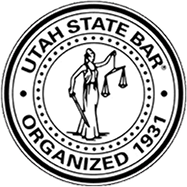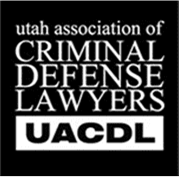Facing a DUI (Driving Under the Influence) arrest in St. George can be overwhelming, with immediate concerns about your driving privileges, potential penalties, and navigating the legal system. Understanding your rights is crucial to making informed decisions during this challenging time. Utah has some of the strictest DUI laws in the nation, including the lowest blood alcohol concentration (BAC) limit at 0.05%. This article explores your rights after a DUI arrest and key legal statutes that shape DUI enforcement in Utah, particularly in St. George.
Understanding DUI Laws in Utah
In Utah, a DUI is defined under Utah Code § 41-6a-502 as operating or being in actual physical control of a vehicle while:
- Having a BAC of 0.05% or greater.
- Being under the influence of alcohol, drugs, or a combination to a degree that renders the person incapable of safely operating a vehicle.
- Having any measurable controlled substance or its metabolite in the body (unless legally prescribed or ingested).
Utah’s laws extend beyond driving. You can be charged with a DUI even if you’re not actively driving but are in “actual physical control” of a vehicle, such as sitting in a parked car with the keys. Courts use a “totality of circumstances” test to determine actual physical control, considering factors like whether the engine is running or your position in the vehicle.
Utah’s Unique BAC Limit
Utah made national headlines in 2018 by lowering its BAC limit from 0.08% to 0.05%, the first state to do so. This change, effective December 30, 2018, means even a small amount of alcohol can trigger a DUI charge. For drivers under 21, Utah enforces a “not-a-drop” policy, where any detectable alcohol (BAC > 0.00%) can result in a DUI. Commercial drivers face a limit of 0.04%.
Implied Consent Law
Under Utah Code § 41-6a-520, drivers in Utah impliedly consent to chemical tests (breath, blood, or urine) when lawfully arrested for a DUI. Refusing a test can lead to an automatic license suspension:
- First refusal: 18 months for drivers 21 and older; until age 21 or 2 years for those under 21.
- Second refusal: 36 months.
Refusal can also be used as evidence in court to support a DUI charge. However, a warrant is required for blood draws unless exigent circumstances exist.
Your Rights After a DUI Arrest
After a DUI arrest in St. George, you have specific rights that are critical to understand:
1. Right to Remain Silent
The U.S. Constitution’s Fifth Amendment grants you the right to remain silent to avoid self-incrimination. In Utah, police must read your Miranda rights if you’re in custody and subject to interrogation. Statements made before these rights are read may be suppressed in court if improperly obtained. During a DUI stop, you’re not obligated to answer questions like “Have you been drinking?” before an arrest, though refusing field sobriety tests or answering questions may raise suspicion.
2. Right to an Attorney
You have the right to consult an attorney before answering questions during custodial interrogation. Once you request an attorney, questioning must stop until one is present. However, Utah’s implied consent law means you cannot consult an attorney before submitting to a chemical test. Promptly contacting a DUI defense attorney in St. George can help you navigate both the criminal and administrative proceedings.
3. Right to a Driver License Division (DLD) Hearing
A DUI arrest triggers two separate proceedings: a criminal case in court and an administrative case with the Utah Driver License Division (DLD). Your driving privileges may be suspended as early as 45 days after the arrest unless you request a DLD hearing within 10 days of the arrest. This hearing, governed by Utah Code § 41-6a-509, allows you to challenge the suspension. You have the right to legal representation at this hearing, where an administrative judge reviews the arresting officer’s report and evidence.
4. Right to Challenge Evidence
You have the right to challenge the evidence against you, such as field sobriety test results, breathalyzer accuracy, or blood draw procedures. An attorney can examine whether police followed proper procedures or violated your Fourth Amendment rights against unreasonable searches and seizures.
5. Right to a Fair Trial
If charged criminally, you have the right to a fair trial, where the prosecution must prove guilt beyond a reasonable doubt. This includes the right to confront witnesses, present evidence, and appeal a conviction if errors occur. In St. George, misdemeanor DUIs are typically handled in justice courts, while felonies go to district courts.
Key DUI Statutes in Utah
Several Utah statutes outline DUI offenses and procedures:
- Utah Code § 41-6a-502: Defines DUI and sets the 0.05% BAC limit.
- Utah Code § 41-6a-517: Criminalizes driving with any measurable controlled substance or metabolite, unless legally prescribed.
- Utah Code § 41-6a-503: Outlines penalties, including fines, jail time, and license suspensions.
- Utah Code § 41-6a-520: Governs implied consent for chemical testing.
- Utah Code § 41-6a-505: Details aggravated DUI penalties for factors like high BAC or causing injury.
Penalties for a DUI in St. George
Penalties depend on the offense level and prior convictions within a 10-year period:
- First DUI (Class B Misdemeanor): Minimum 2 days in jail (or 48 hours of community service), fines of at least $1,295, 12 months of probation, mandatory DUI education, and an ignition interlock device for 18 months.
- Second DUI (Class A Misdemeanor): Minimum 10 days in jail (or 240 hours of community service), fines of at least $1,480, extended probation, and increased treatment requirements.
- Third DUI (Third-Degree Felony): Minimum 62 days in jail, up to 5 years in prison, fines up to $5,000, and a DNA sample for a law enforcement database.
- Aggravated DUI: Enhanced penalties apply if a crash causes injury, a passenger under 16 is present, or multiple controlled substances are detected.
A conviction also designates you as an alcohol-restricted driver, prohibiting any alcohol consumption while driving for 2 years (first offense) or 10 years (second offense). Violating this status can lead to further penalties.
Navigating the DUI Process in St. George
Criminal vs. Administrative Proceedings
A DUI arrest in St. George involves two processes:
- Criminal Case: Handled in justice or district courts, addressing penalties like fines or jail time. The prosecution must prove guilt beyond a reasonable doubt.
- Administrative Case: Managed by the DLD, focusing on your driving privileges. You must request a hearing within 10 days to contest a suspension.
St. George-Specific Considerations
St. George’s busy roads, driven by tourism, lead to heightened police vigilance for impaired driving. Local courts, like the Washington County Justice Court, handle misdemeanor DUIs, while felonies go to the Fifth District Court. Consulting a St. George-based attorney familiar with local procedures can be beneficial.
Practical Steps After a DUI Arrest
- Request a DLD Hearing: Submit a request within 10 days to preserve your driving privileges.
- Document the Arrest: Note details like the officer’s behavior, tests administered, and statements made.
- Understand the Timeline: Your license may be confiscated at the arrest, replaced with a temporary permit expiring in 29 days. Suspension begins on the 45th day if no hearing is requested.
- Prepare for Court: Gather evidence, such as receipts or witness statements, that may support your case.
Conclusion
A DUI arrest in St. George, Utah, triggers a complex legal process with significant consequences. Knowing your rights—to remain silent, to an attorney, to challenge evidence, and to a fair trial—empowers you to navigate the system effectively. Utah’s strict 0.05% BAC limit, implied consent laws, and dual criminal-administrative proceedings underscore the importance of understanding the legal framework.
For personalized guidance, contact a qualified DUI defense attorney in St. George to discuss your case. Call Edward D. Flint, Attorney at Law, at (385) 707-0702 for a confidential consultation. With over 33 years of experience and a deep understanding of the Fifth District Court, Attorney Flint provides personalized, aggressive defense to protect your rights and fight for the best possible outcome.
Call now to schedule your consultation and take the first step toward resolving your case with confidence.




